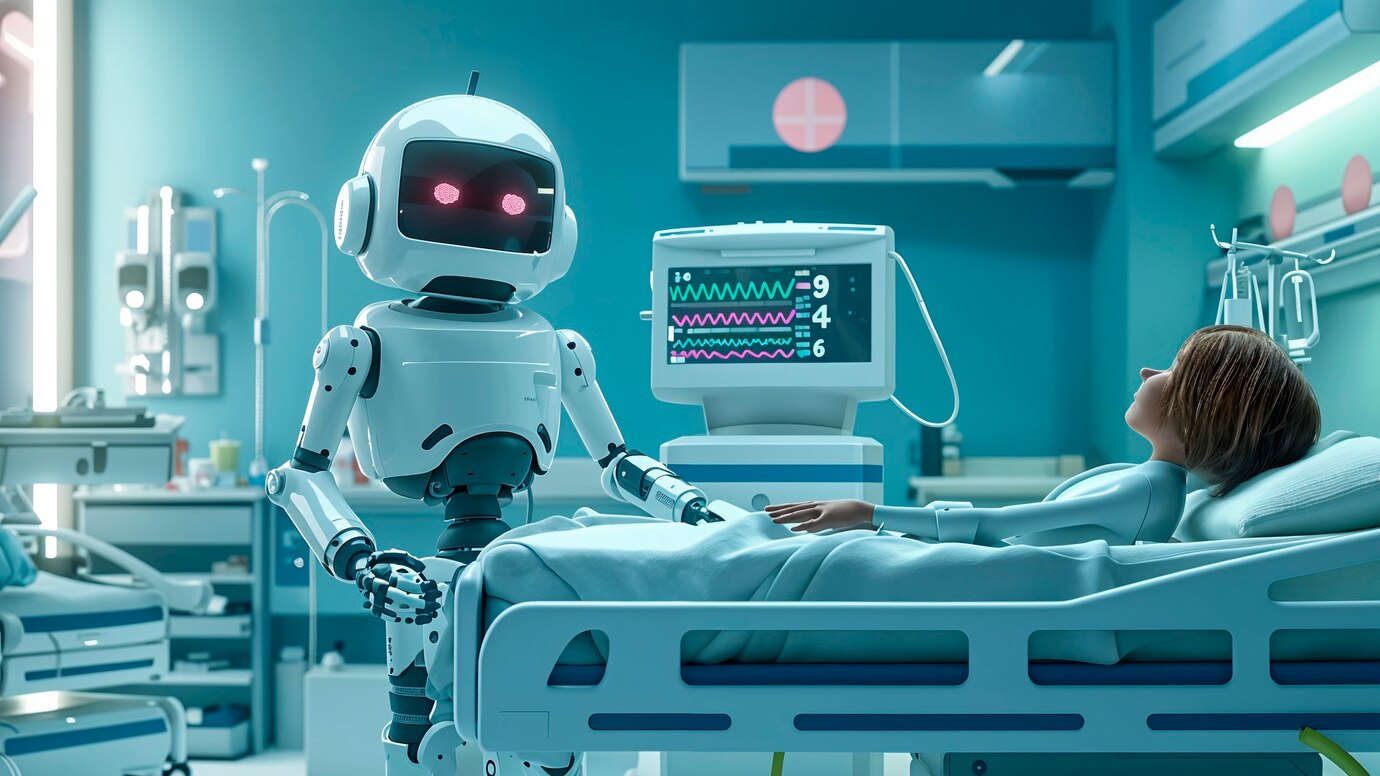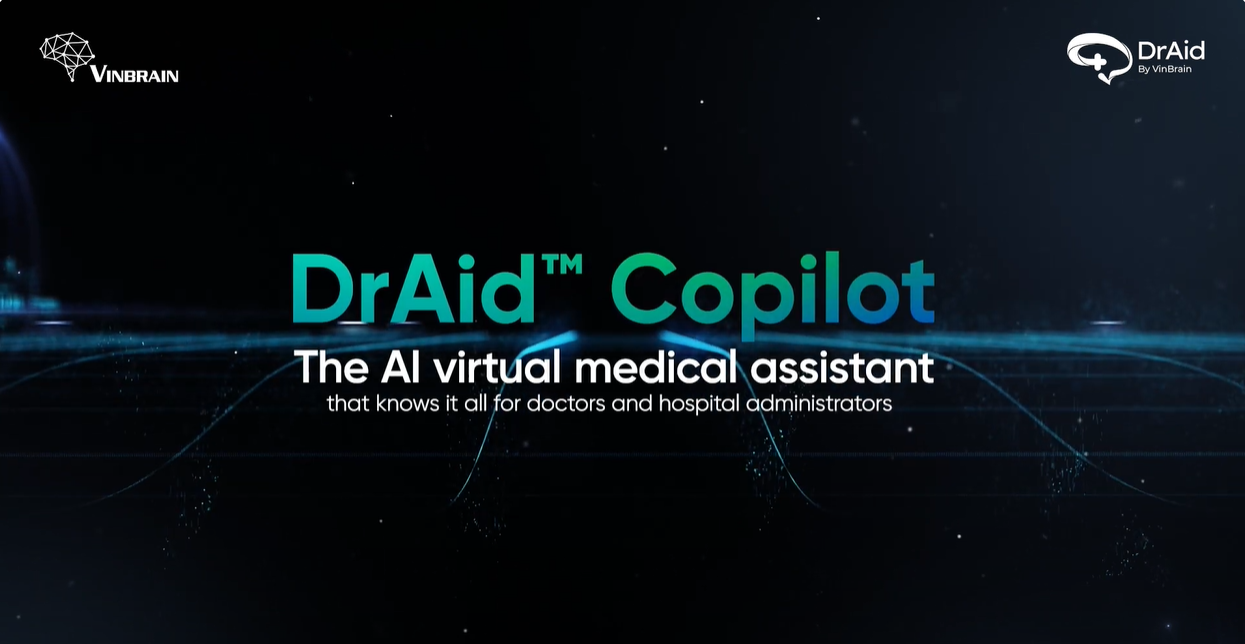
Generative AI in healthcare is being applied to many processes and aspects to increase treatment accuracy and develop the performance of document handling process. However, this process faces some challenges due to the limitation of data resources and technological infrastructure.
Generative AI in healthcare is considered as an effective healthcare technology of the future. GenAI in healthcare is a method applying artificial intelligence to increase the accuracy of diagnostic ability and create the most effective treatment protocol for each case. Moreover, Generative AI also supports many activities that require interaction between people such as managing the relationship between healthcare systems.
Data triage, medical information and medical history of patients is a time-consuming manual task. However, when GenAI technology is applied to healthcare, relevant data will be fully synthesized and provided immediately. At the time, Generative AI also proposes solutions based on the availability data, helping reduce times and improve the performance of physicians.
According to the recent report related to the global industry of Generative AI in heathcare, experts estimated that it will reach a value of 21 billion USD by 2032. That is also the reason why the stakeholders in healthcare, such as insuarance companies and hospital administrators, are willing to integrate GenAI into many aspects of healthcare.

GenAI in healthcare is being developed with many techonologies and the most advanced algorithms to solve the existing limitation and bring optimal performance. Generative AI is being applied in medial fiels to assist both users and doctors in many aspects
Deloying GenAI provides users with more quality and efficient experiences through upgrading the management system. The healthcare system management will be innovated by the synchronization of data system such as health charateristic, patient medical history, …. The insuarance benefit of patient are also mentioned fully and detail on the system. In addition, patients can receive announcements from healthcare facilities fully and quickly.
Generative AI in medical can support the doctors in their expertise to make more accurate diagnoses. GenAI integrates data related to the patient's health status so doctors can understand detailed medical records. In addition, generative AI also combines with available data sources to make predictions about disease development speed and suggest appropriate treatment regimens. Therefore, GenAI can be a tool to help doctors increase treatment efficiency for patients.
GenAI in healthcare supports medical staff in handling repetitive processes and procedures to save time and improve efficiency. Patient discharge procedures often take a lot of time to process because medical staff need to review insurance benefits and inventory services to create hospital bills. When GenAI is integrated, patient admission and discharge information will be processed quickly and updated continuously. Furthermore, generative AI can also collect information and medical data through conversations to design images and create videos for conveying medical knowledge.
It can be seen that Generative AI in healthcare brings many potential benefits for patients, doctors, and medical facilities in general. However, there are still many challenges that the medical industry must face when GenAI applications come into practice.
The performance of GenAI depends on the quality and diversity of the data used to train it. In cases where the data lacks diversity and comprehensiveness, the evaluation of GenAI may be incorrect, especially for diseases where AI has insufficient data.
Medical organizations need established the strict rules for development process and checking algorithm, monitoring and evaluating AI performance in practice to promptly correct errors and expand the scope of data collection
GenAI in healthcare needs to use a lot of sensitive personal data of patients, such as health status and medical records, to train artificial intelligence and create assessments. Therefore, data security is a huge challenge when operating generative AI in healthcare.

To maximally protect patients' personal data, medical facilities need to strictly comply with data security regulations, deploy data encryption, strictly control access rights, and implement anti-virus mechanisms to prevent unauthorized access. Furthermore, healthcare facilities also need to develop regulations on sharing digital data and ensure that data used to train AI will be anonymized or have unnecessary personal information removed, necessary to minimize risks
To deploy AI-generated content in healthcare, strict regulations must be established and rigorous compliance monitoring enforced. Healthcare facilities need to ensure the development of regulatory frameworks that align with guidelines and standards set forth by regulatory bodies for both artificial intelligence and medical devices.
Most healthcare facilities currently operate on outdated systems that are not compatible with advanced AI technology. This discrepancy can cause disruptions in existing workflows within healthcare settings and may face resistance from physicians, as new technology could potentially alter their established practices.
Healthcare facilities should conduct thorough assessments of their IT infrastructure to ensure compatibility between AI systems and existing technologies. Additionally, training programs should be developed to support healthcare staff in familiarizing themselves with and adapting to AI-integrated processes.
Generative AI in healthcare is progressively advancing and refining algorithms to deliver accurate and prompt results for X-ray, MRI, and CT imaging diagnoses.
This AI technology is trained using large datasets from patients to detect early signs of diseases and predict the disease progression based on health indicators and patient conditions
GenAI's algorithms will identify promising compounds for clinical testing by analyzing chemical reactions and molecular structures. It also predicts the effectiveness and side effects of the drug.
The process to research and develop drugs is very complicated, costs up to tens of billions and will take decades. But there have been many real-life examples that have shown that this process has significantly saved time thanks to the application of GenAI.
Personalized medicine is a treatment method based on health status and indicators in tests to come up with an appropriate treatment regimen. GenAI will rely on diverse data sources, medical history and test results to predict the growth rate and provide the most appropriate treatment method and plan for each patient.
This personalized medicine approach brings maximum effectiveness in treatment, health care and minimizes side effects.
GenAI's algorithms will identify promising compounds for clinical testing by analyzing chemical reactions and molecular structures. It also predicts the effectiveness and side effects of the drug.
The process to research and develop drugs is very complicated, costs up to tens of billions and will take decades. But there have been many real-life examples that have shown that this process has significantly saved time thanks to the application of GenAI.
GenAI is being developed to restore functions such as speech and movement lost due to injury or disease through signals from the brain and nerves. This method will implant microchips into the brain and use algorithms to connect the brain and spine to help paralyzed people regain feeling and movement. This technology offers hope for recovery and change in the lives of people who have lost function.
DrAid™ Enterprise Data Solution, the groundbreaking AI solution from VinBrain designed for Hospital Data Management, promotes comprehensive digital healthcare transformation, aiming for the goal of "1 patient 1 record". This holistic and robust platform leverages the boundless power of AI to store, centralize, structure, analyze, and add intelligence into healthcare data, opening new prospects for precise and personalized care.
At heart of the platform is DrAid™ Copilot, a 24/7 virtual medical assistant dedicated to doctors and healthcare managers, leveraging generative AI and medical knowledge to provide real-time natural language interaction with doctors.

Top